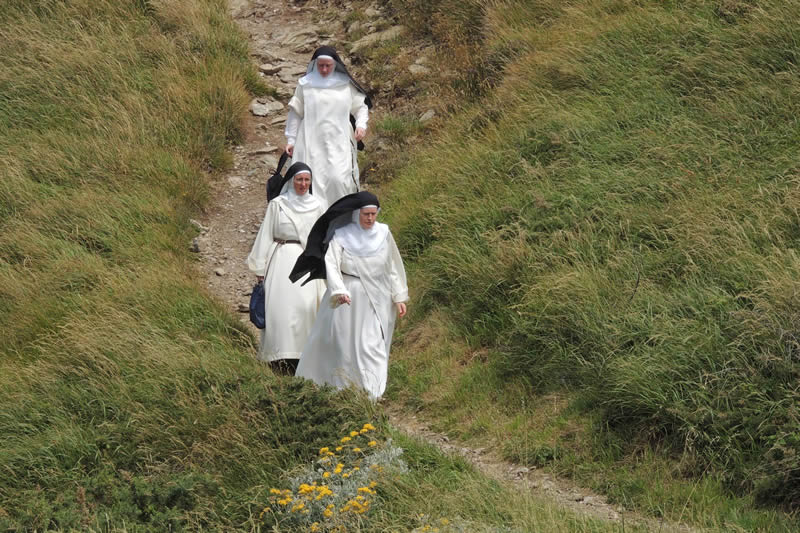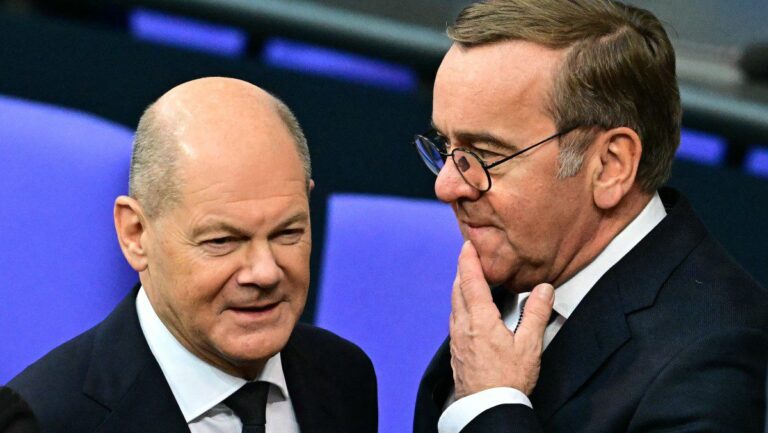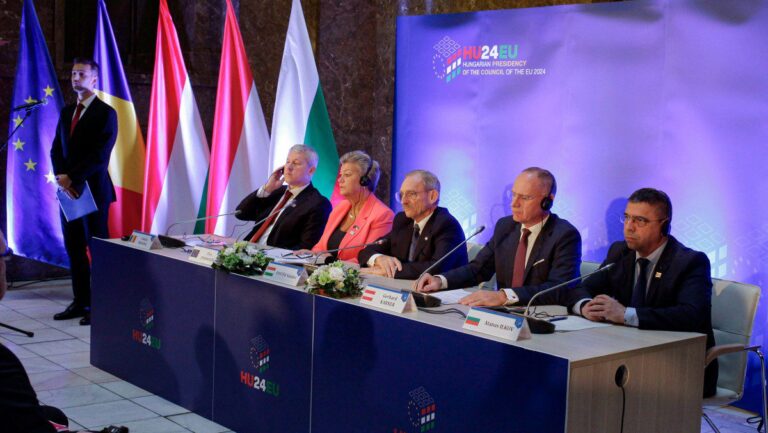The last ten years have been a Calvary for the traditionalist Dominicans of the Holy Spirit. Psychospiritual abuse, internal strife, and bad governance, complicated by poor Vatican oversight, had not only hurt individual souls but had also left the community with a lingering sense of neglect from church authorities.
Now, the personal intervention of Pope Francis and his apology to the community have started to heal those wounds.
“We do not represent much in the universal Church… And yet the pope, as a father, takes the trouble to write to us to apologise and encourage us… It fills us with emotion,” said Sister Marie Magdalene, spokesperson for the Dominicans of the Holy Spirit.
The Dominicans of the Holy Spirit were founded in 1943 by Father Victor-Alain Berto, who had been personal theologian to Archbishop Marcel Lefebvre during the Second Vatican Council. Their troubles started in 2010 when, in gathering testimony to start the process of beatification for their founder, accusations of pedophilia emerged, as well as accounts from older sisters of “ambiguous gestures” towards them that put Fr. Berto’s sanctity into doubt and divided the community.
At the same time, abusive practises were going on inside the convent walls. Some of the sisters apparently had manifested psychological problems and were forced to undergo exorcisms by the chaplain with the express approval of the prioress.
The women subjected to this abuse left the community, but some of the nuns denounced the practice to Rome. The matter was turned over to the Ecclesia dei Commission, established by John Paul II to oversee traditionalist communities. It decided to launch an investigation, which was called, in this case, a visitation.
During the initial visitation, Monsignor Mgr. Patrick Descourtieux, a member of the Ecclesia Dei Commission, found that indeed the religious institute had serious governance problems and the exorcisms were illegitimate. The then-superior and her council were dismissed, and Father Benoît-Dominique de La Soujeole, a Dominican from the Toulouse province of the Order of Preachers was appointed to oversee the community and continue to investigate.
He brought in two outside investigators to examine the claims against the founder. They concluded that the accusations of pedophilia were unfounded although they could not dismiss the recollections the sisters. They said they were not in a position “to give a judgement with certainty on the moral seriousness” of the “ambiguous gestures” that the founder allegedly made towards several nuns. In 2016, de La Soujeole presented a 1,500-page report to both the community and the Ecclesia Dei Commission.
But the Ecclesia Dei Commission dismissed the work of de Soujeole as “tainted” and declared the founder unequivocally rehabilitated. As the founder was now deceased and could not defend himself, the sisters were “not to question” the commission’s judgement.
In another irregular move, the commission appointed a new prioress for the community but not a general council of sisters to govern with her, as required by both canon law and the community’s constitutions. Instead, the committee itself served as a general council for the next three years, causing confusion within the community.
In 2019, the sisters were able to elect a prioress and general council, restoring normal governance in the community. Still, their problems remained.
“The ‘Ecclesia Dei’ Commission was made aware of everything that happened since 2013. But between 2014 and 2019, it did not address some of the issues we brought to its attention,” Sister Marie Magdeleine told La Croix International. “They have not helped us to get to the truth, to accompany the people. Some victims have turned to Rome and have received only very disappointing or inadequate responses.”
Though victims of the exorcisms testified to Vatican authorities that they had been put through “physical and psychological violence,” there was no follow through in reconciling the community with their former members or offering pastoral support. Accusations of sexual abuse by one sister against two other sisters had also come out in the Vatican investigation but they were never acted upon.
In 2020, another visitation was launched which confirmed the legitimacy of the community leadership elected in 2019 and resulted in the controversial dismissal of a long-time sister. Pope Francis appointed Dominican Father Henry Donneaud to continue to accompany the community. Donneud had spent the previous ten years as the pontifical delegate for reforming another French religious institute, the Community of the Beatitudes.
In his letter to the sisters, Pope Francis apologised for three points: the decision to fully rehabilitate the founder and suppress all dissent on the question, the Vatican’s exhibition of “a lack of understanding of religious life,” and the neglect of abuse victims.
“I am aware of the suffering that may have resulted from this accompaniment and, while I ask you to forgive us, I hope that the means will be taken to relieve it and allow rebuilding for those who need it,” the pope told the community in a signed letter dated December 23rd, 2021.
Francis did not mention the Ecclesia Dei Commission by name but assured the sisters he had “personally followed the developments in [their] situation, because it has become clear to me that, since the beginning of my pontificate, you have not always received adequate support from the authorities of the Holy See who were responsible for looking after you.”
He also told them that he had personally made the decisions that came as a result of the visitation and assured them that church authorities were handling the matter of the chaplain who had performed the exorcisms. The priest is facing both civil and ecclesiastical sanctions, according to Familie Chretienne.
“My feeling is that the members of ‘Ecclesia Dei’ lacked competence in governing and accompanying people,” Donneaud told La Croix International. “What interested them, in my opinion, was mainly the liturgical question and support for the traditionalist ethos. In fact, that was the raison d’être for their commission.”
Pope Francis also encouraged the Dominican sisters to grow in their charism. With the Tridentine Mass as their normal liturgy, and their founder still as a source of inspiration, the community is ready for a fresh start.
In a press release, the community said the Holy Father’s letter “marks a milestone for them and opens a new path.”
They also issued their own “request for forgiveness” from their former community members who were victims of abuse, and promised to “continue the work of transparency, truth, and pacification begun, according to the request of the Holy Father.”





